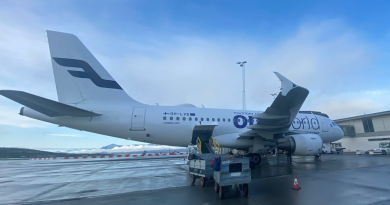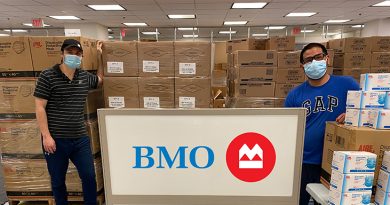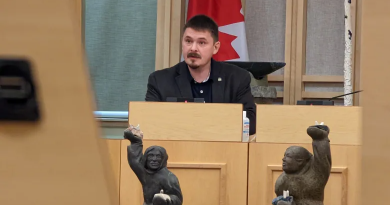Nunavik eyes post-secondary education rooted in Inuit culture and offering Western credentials
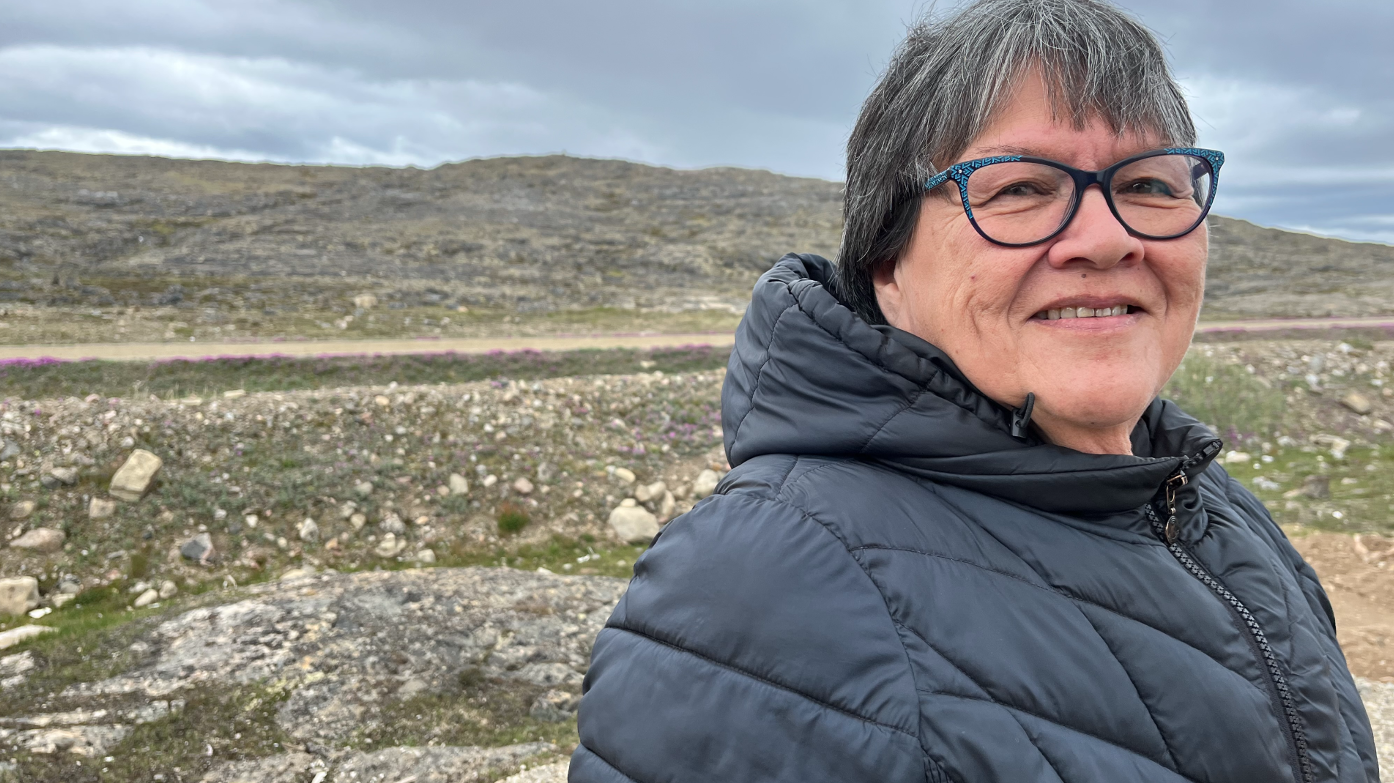
own educational future,” says Sarah Aloupa, president of the Kativik school board, pictured here in her home community of Quaqtaq. (Eilís Quinn/Eye on the Arctic)
Education rooted in Inuit culture — but offering recognized Western credentials and based in the North — are among the top priorities emerging from a recent public consultations on creating a post-secondary institution in Nunavik.
“Like an independent CEGEP, this institute would bring together the strengths of local governance, culturally relevant programming, public funding, and recognized certifications,” Phebe Bentley, director of Post-Secondary Education Services at Kativik Ilisarniliriniq (KI), the Nunavik regional school board in northern Quebec, said in a statement.
“It could offer both college and university-level programs under one roof—an approach many of the public consultations participants felt would meet the need for a more integrated and flexible educational pathway.”
The KI-led consultations drew hundreds of participants from all 14 of the region’s communities between October 2023 and March 2024, board said in a report issued on Tuesday.
Many respondents said Inuit culture, Inuktitut, and traditional skills like sewing or navigating on the land, were among the most requested subjects, along with subjects like health care, management, and public administration.
“Governance and politics and health sciences were much more popular among the general adult population than they were among the high school students, while humanities and business and management were equally popular among both groups,” the report said.
A long-standing education gap
Nunavik — the Inuit region of northern Quebec — is home to about 13,000 people spread across 14 fly-in communities.
While some vocational training is available locally, anyone who wants to continue their education beyond high school has to leave the region and go to the South.
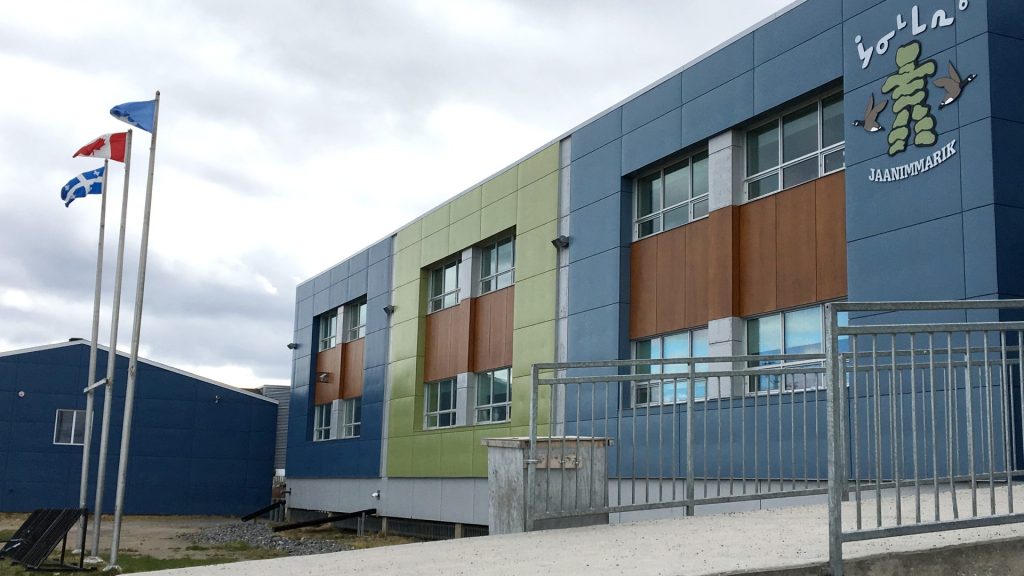
The distance, cost, and long separations from family, language, and culture mean many students come back before they finish their programs.
Parents in particular say it’s not realistic to uproot children or spouses for the years it can take to get a college or university degree.
What kind of institution?
Community members in the consultations were divided on whether Nunavik should aim for a college, a university, or a hybrid model.
Many respondents suggested multiple campuses or satellite sites to make programs accessible across Nunavik’s vast territory and that would allow people to access education in their own dialects.
The Quebec Ministry of Higher Education has already commissioned a prefeasibility study to look at potential post-secondary models. The study, completed in 2023, estimated an institution could eventually serve about 340 students and 75 staff.
In the report released this week, Kativik Ilisarniliriniq (KI) highlighted the legal hurdles ahead, particularly around Quebec’s French-language laws that govern most post-secondary institutions in the province. Those rules don’t easily apply in Nunavik, where the vast majority of residents speak Inuktitut as their first language, English as a second, and very little French.
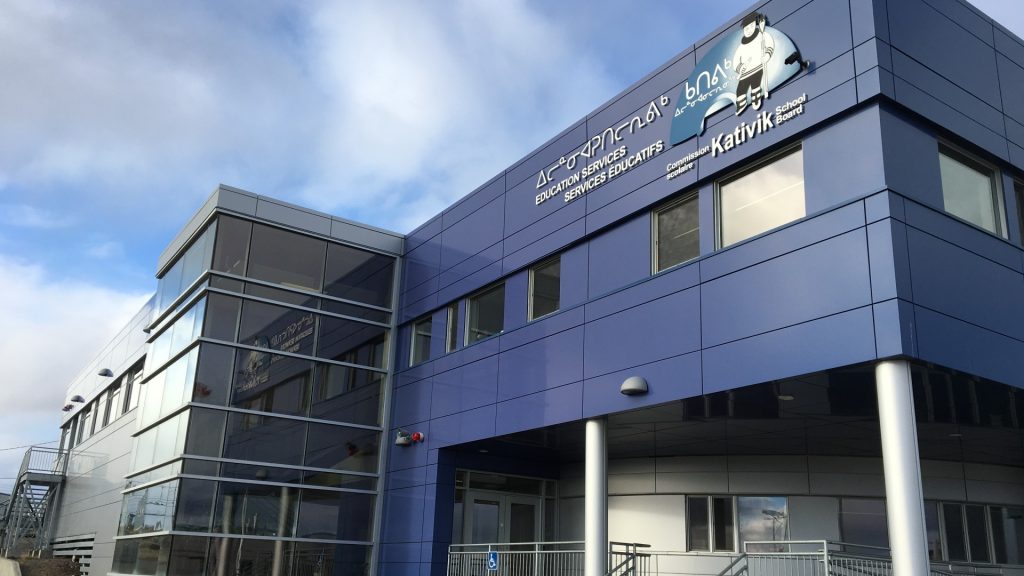
KI officials say they’ll use the consultation results to guide upcoming discussions with Makivvik and the Quebec government on post-secondary governance, potential program offerings and possible locations.
“Following up on a resolution it adopted in March 2025, the Council of Commissioners reiterated its support for the creation of a Nunavik Institute, an independent non-governmental Inuit post-secondary institution spearheaded by Kativik Ilisarniliriniq,” Sarah Aloupa, president of Kativik Ilisarniliriniq, said.
“This move aligns with the Council’s view that our youth deserve access—in their region—to higher education that reflects who they are, where they come from, and where they want to go.”
Comments, tips or story ideas? Contact Eilís at eilis.quinn(at)cbc.ca
Related stories from around the North:
Canada: Mark Indigenous languages decade by making Inuktitut official in Canada: Inuit UN rep, The Canadian Press
Finland: Everyone encouraged to boost Sami language visibility in Finland, Norway and Sweden this week, Eye on the Arctic
Norway: Indigenous and minority language names for Norway now have official status, The Independent Barents Observer
Russia: German project to house everything published in Siberian and Arctic languages to seek new funding, Eye on the Arctic
Sweden: Can cross-border cooperation help decolonize Sami-language education, Eye on the Arctic
United States: Inuit leaders applaud UN move to designate International Decade of Indigenous Languages, Eye on the Arctic

